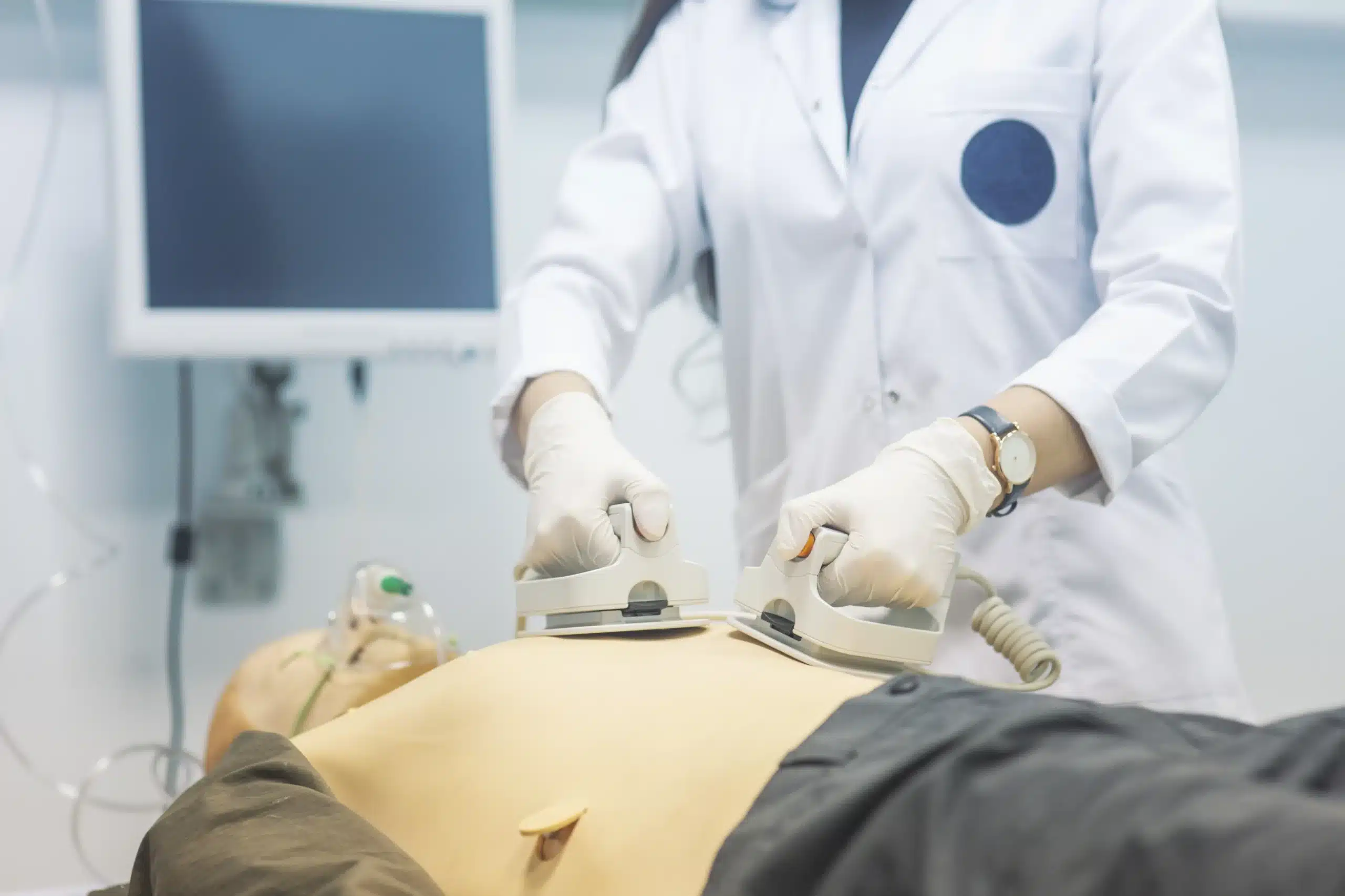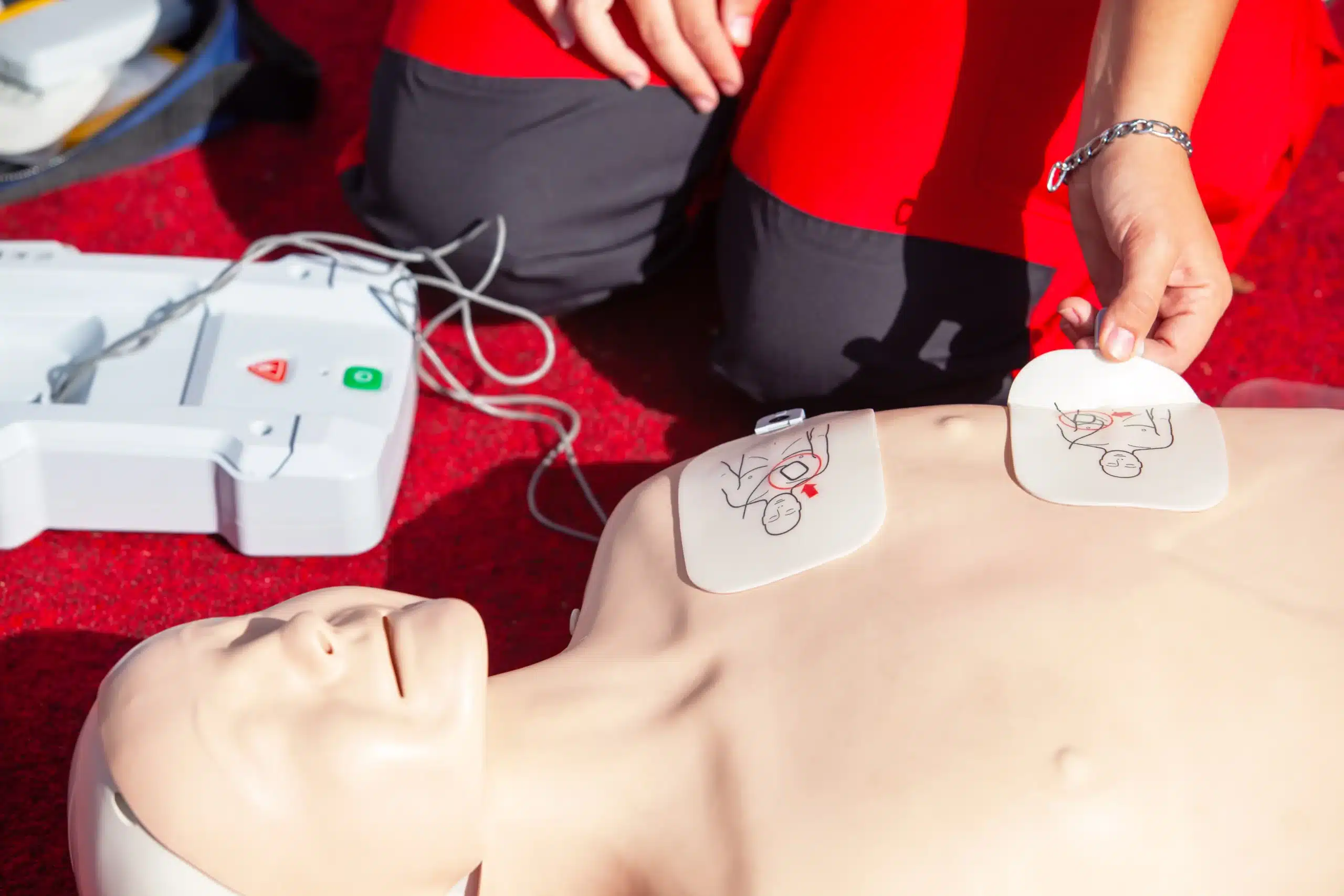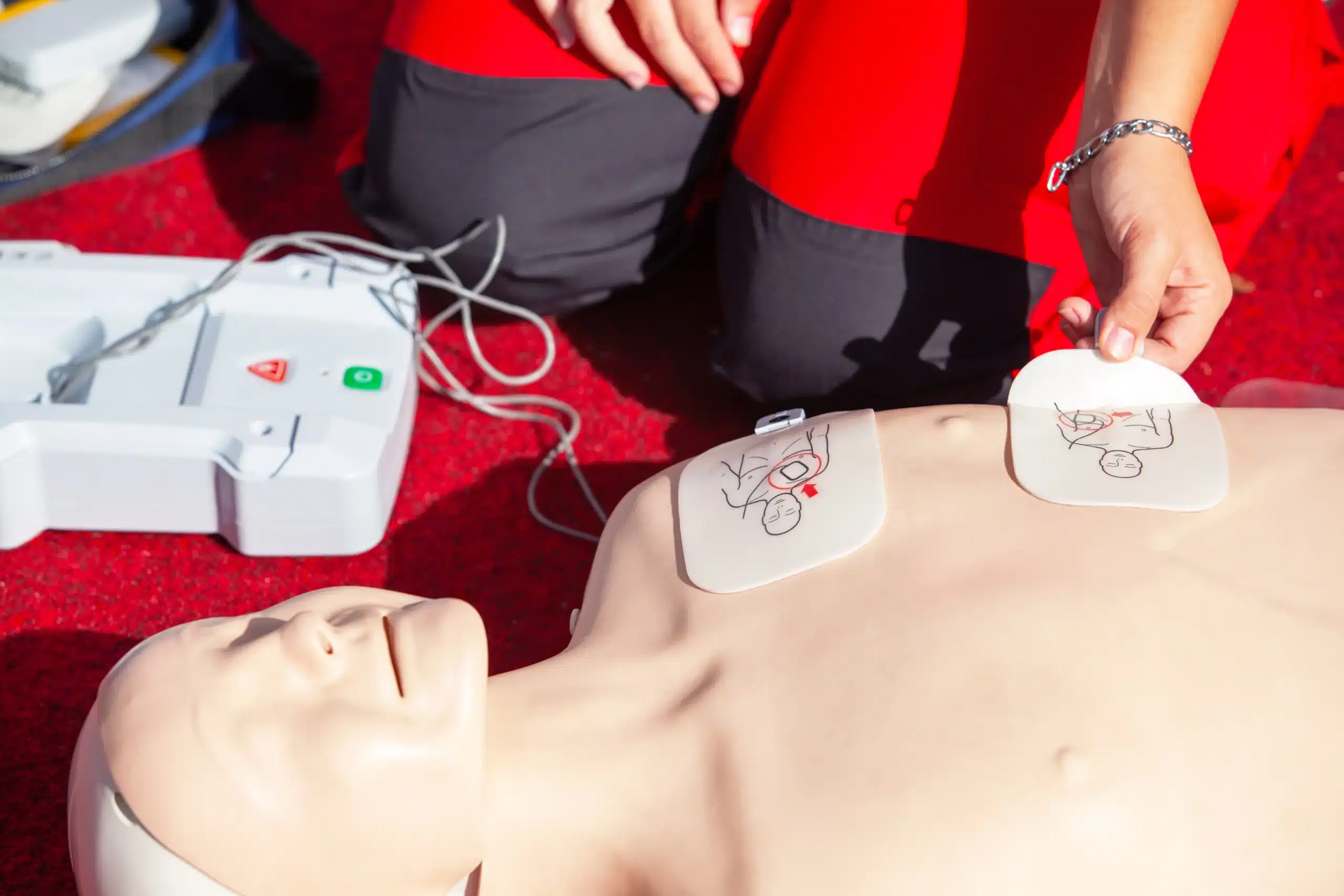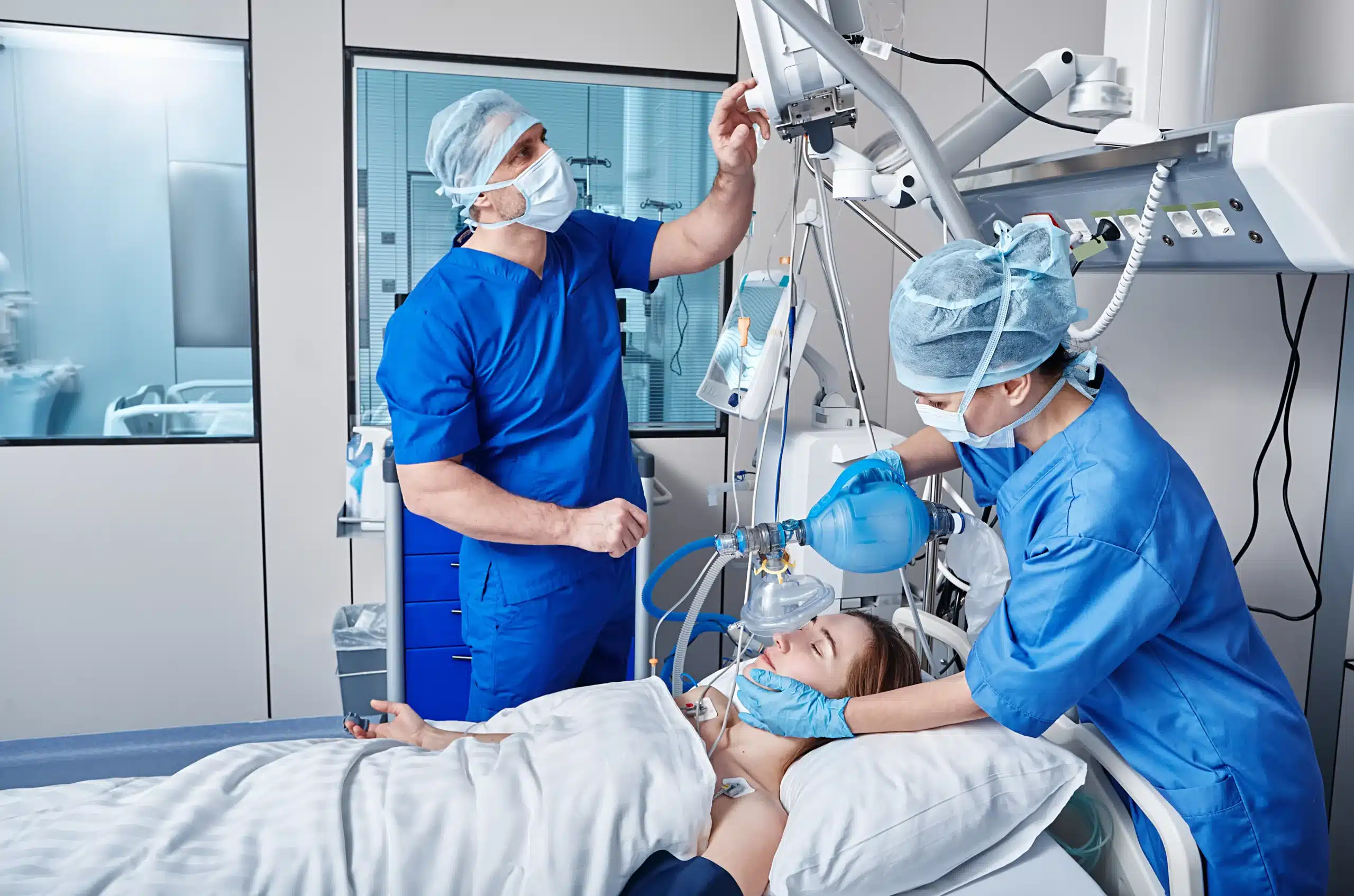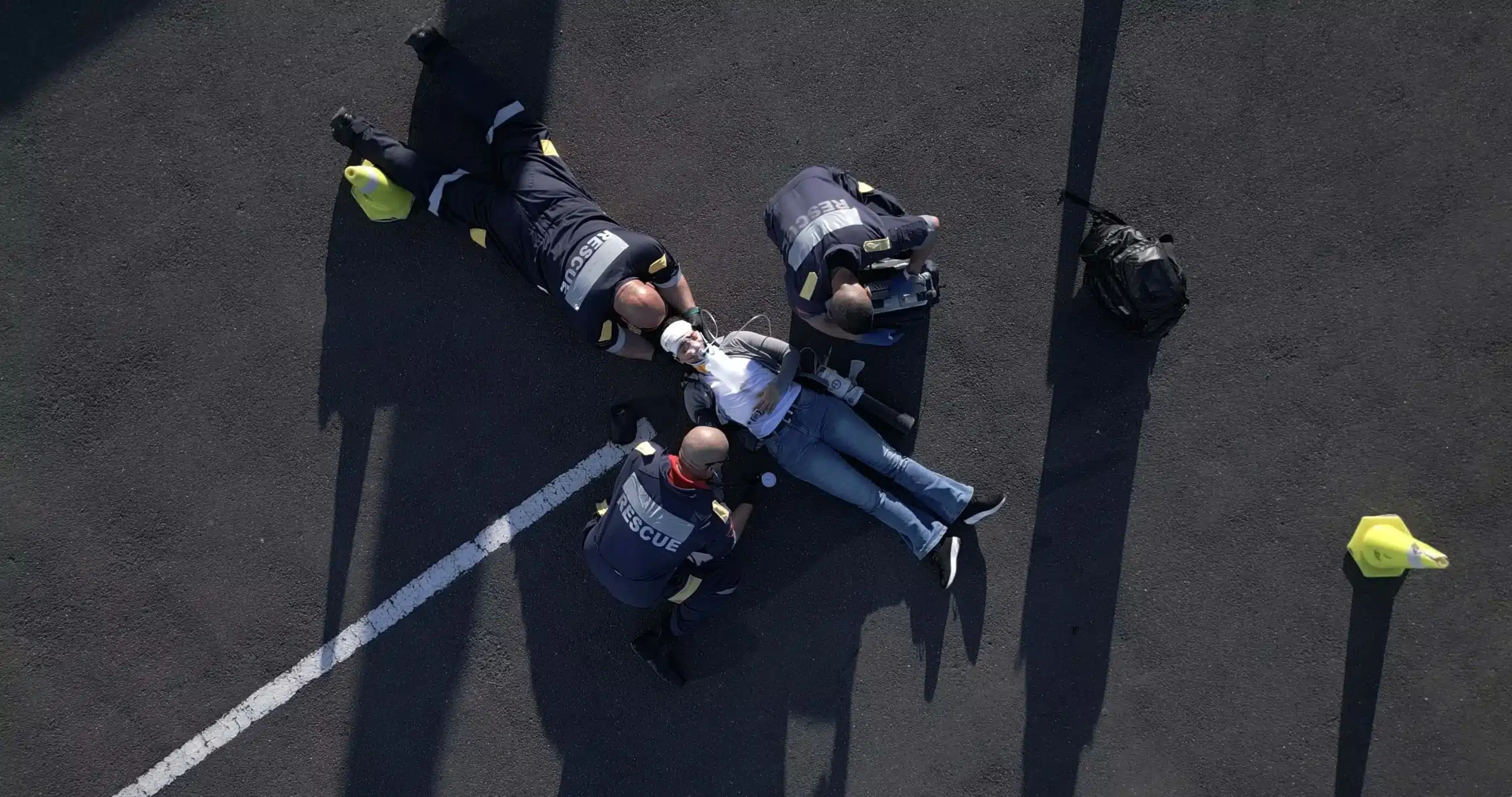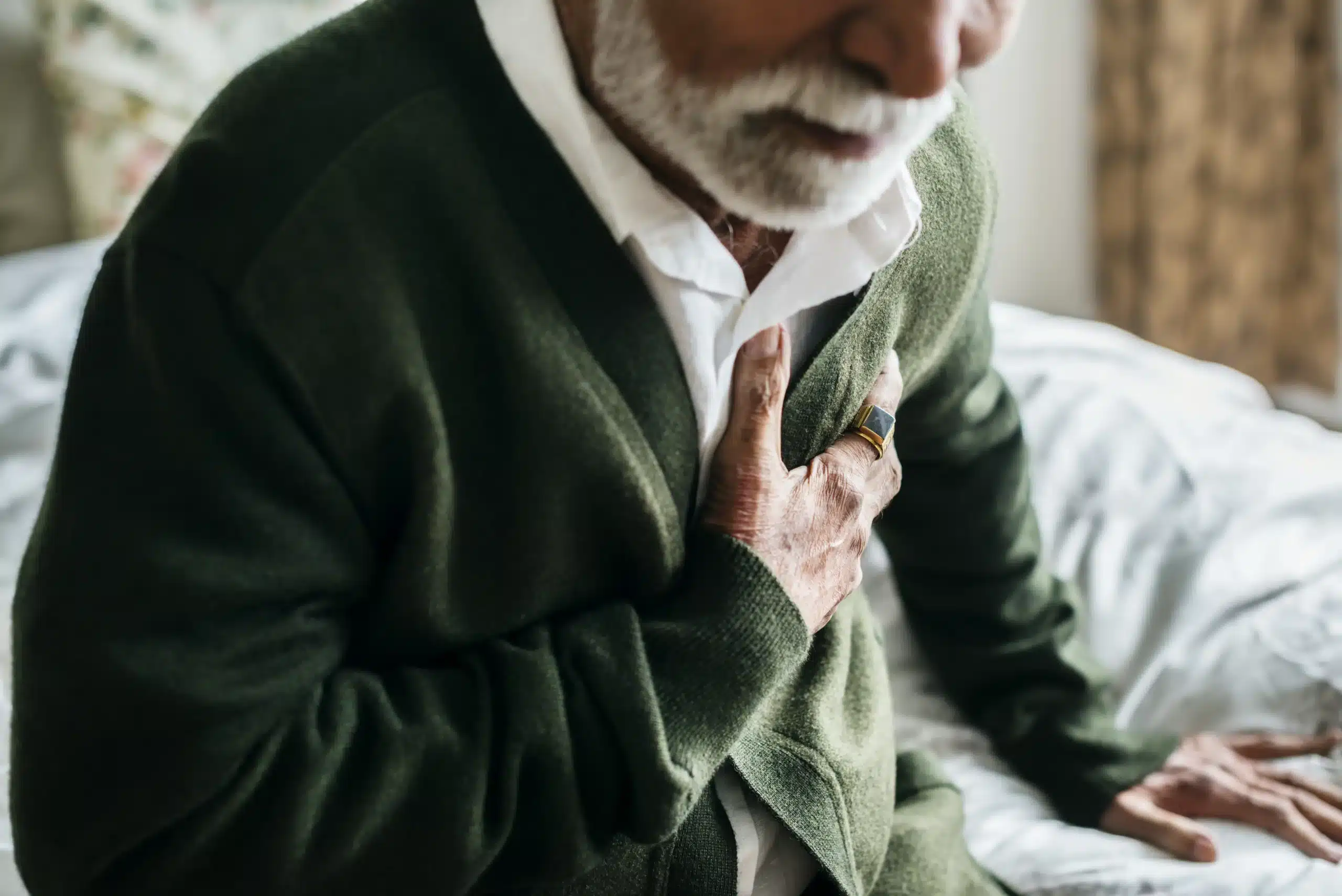As a healthcare provider, you know that seconds can matter in an emergency, especially when a child’s life is on the line. Pediatric Advanced Life Support (PALS) training equips you with the specialized knowledge and skills to confidently respond to these critical situations. If you’re in San Leandro, California, and seeking high-quality PALS certification, this guide offers valuable insights into the course, its benefits, and how to find the right training program for you. We’ll explore what pediatric advanced life support in San Leandro entails, discuss the importance of PALS certification for various healthcare professionals, and guide you through the process of finding the perfect course to fit your needs.
Key Takeaways
- PALS certification equips you with essential pediatric emergency skills: From quick assessments and life-saving interventions to accurate medication administration, PALS training provides a comprehensive skill set for healthcare professionals working with children. Hands-on practice and simulated scenarios build confidence for real-world application.
- Accessible and affordable PALS training is readily available: Conveniently located training centers in San Leandro offer flexible schedules, same-day certification, and expedited options like the RQI program. Take advantage of group discounts and low-price guarantees to maximize your training investment.
- Maintaining your PALS certification ensures ongoing preparedness: Stay current with the latest guidelines and best practices through continuing education and renewal every two years. Regularly refresh your skills and knowledge to confidently handle any pediatric emergency.
What is PALS?
Pediatric Advanced Life Support (PALS) certification teaches you how to respond to life-threatening emergencies in children and infants. It’s a specialized program developed by the American Heart Association, designed to give healthcare providers the knowledge and skills they need to stabilize and treat young patients in critical situations. Think of it as advanced training specifically tailored to the unique needs of pediatric patients. For more information on other courses, check out our guide on BLS certification.
Key Skills You’ll Learn
The PALS course covers essential skills, including pediatric assessment, basic and advanced life support techniques, and pediatric pharmacology. You’ll learn how to quickly and accurately assess a child’s condition, perform CPR and other life-saving interventions, and administer medications appropriately. The program emphasizes hands-on training, giving you plenty of opportunities to practice these skills in a simulated environment. We also offer a low price guarantee to ensure accessible training.
Why PALS Matters for Healthcare Professionals
PALS certification is essential for any healthcare professional working with children. It provides specialized training to handle pediatric emergencies effectively, leading to better patient outcomes and higher-quality pediatric care. Whether you’re a doctor, nurse, or other healthcare provider, PALS certification demonstrates your commitment to providing the best possible care for young patients. For expedited certification, consider our RQI program. If you have questions or want to learn more, please contact us. We also offer group discounts to make training more affordable.
Find PALS Certification in San Leandro
Looking for PALS certification in San Leandro? You have several solid options. This section breaks down a few reputable providers to help you find the right fit.
San Leandro CPR Classes
San Leandro CPR Classes offers AHA PALS certification courses available daily. The program blends online learning with in-person skills sessions, emphasizing hands-on practice and teamwork. They cover essential PALS topics, including pediatric assessment, basic and advanced life support, and pediatric pharmacology, to prepare you for pediatric emergencies. Check out their low price guarantee and group discounts.
Safety Training Seminars
Safety Training Seminars provides various CPR classes in San Leandro, including PALS certification through the American Heart Association. Their courses cover a range of certifications such as CPR, BLS, ACLS, PALS, NRP, EMSA, and First-aid. Upon completion, you’ll receive an official AHA certification card valid for two years.
Bay Area CPR
Bay Area CPR partners with Safety Training Seminars to offer a comprehensive selection of AHA courses, including PALS, BLS, ACLS, and First-aid certification. They pride themselves on excellent customer service, with representatives available daily from 8 AM to 10 PM. With classes in San Leandro and over 60 other cities, you can easily find a convenient time and location.
What Will You Learn in a PALS Course?
PALS, or Pediatric Advanced Life Support, equips healthcare providers with the knowledge and skills to manage pediatric emergencies. This training goes beyond basic CPR and covers critical areas specific to infant and child care. Let’s explore the key components of a PALS course:
Pediatric Assessment Techniques
In a PALS course, you’ll master essential pediatric assessment techniques. You’ll learn how to quickly assess a child’s condition, identify warning signs, and make informed decisions under pressure. This includes recognizing respiratory distress, evaluating circulation, and understanding age-specific vital signs. These skills are fundamental for providing appropriate and timely interventions. For more in-depth training, explore our PALS certification options.
Basic and Advanced Life Support for Children
PALS certification covers basic and advanced life support techniques tailored to children. You’ll review core skills like CPR and learn advanced interventions for managing respiratory and cardiac arrest in pediatric patients. The course emphasizes a systematic approach to resuscitation, ensuring you can confidently apply the appropriate steps in various emergency scenarios. This specialized training is vital for any healthcare professional who may encounter critically ill children. Consider our BLS certification for foundational life support training.
Pediatric Pharmacology
Understanding pediatric pharmacology is another essential part of PALS training. You’ll learn about medications used in pediatric emergencies, including dosages, administration routes, and potential side effects. This knowledge is crucial for safe and effective medication delivery in critical situations. The course provides a practical framework for understanding drug interactions and calculating accurate dosages based on a child’s weight and age.
Hands-on Training and Teamwork
A significant part of the PALS course involves hands-on training and simulations. You’ll practice your skills in realistic scenarios, working as a team to manage simulated pediatric emergencies. This interactive approach reinforces learning and builds confidence in your ability to respond effectively in real-life situations. Teamwork is emphasized, highlighting the importance of clear communication and coordinated efforts during a pediatric emergency. We offer group discounts for those interested in training with colleagues. Our low price guarantee ensures you’re receiving the best value for this essential training.
PALS Course Formats and Duration
PALS courses are designed to fit your busy schedule, offering a blend of online learning and in-person skills practice. This format lets you learn the material at your own pace and then demonstrate your skills in a practical setting.
Online Learning
The bulk of the PALS course happens online, requiring around three to four hours. This online portion covers essential concepts and procedures, providing a solid foundation in pediatric advanced life support. You’ll work through interactive modules, videos, and assessments, ensuring you understand the material before your skills test.
In-Person Skills Testing
After completing the online modules, you’ll schedule a short, in-person skills test. This hands-on portion usually takes 30 to 40 minutes at a San Leandro CPR Classes testing site. You’ll perform the skills you learned online with a voice-activated mannequin. While an instructor isn’t physically present during the test itself, phone support is available if needed.
Time Commitment and Flexibility
San Leandro CPR Classes understands healthcare professionals have demanding schedules. That’s why they offer PALS classes seven days a week, from 7 am to 6 pm. With daily classes available, you can choose a time that best suits your needs, minimizing disruption to your work or personal life. This flexibility makes getting your PALS certification easier than ever.
PALS Certification: Cost and Value
Typical Pricing
PALS certification courses in San Leandro typically cost around $290. This covers your online coursework, the in-person skills session, and your official certification card. This all-inclusive pricing ensures participants receive comprehensive training and certification in pediatric advanced life support. For more details on pricing, visit the San Leandro CPR Classes website.
Price Matching and Low Price Guarantee
We understand that cost is a factor when choosing a PALS certification course. Many training providers in the area offer a low-price guarantee, so you get the best value for your investment in PALS certification. This commitment to competitive pricing makes essential training more accessible to healthcare professionals. Learn more about the low-price guarantee offered by San Leandro CPR Classes.
Group Discounts
Coordinating training for a group of healthcare providers? Look for providers offering group discounts to reduce the overall cost. Many providers also offer flexible scheduling and can even bring the training to your facility. Contact San Leandro CPR Classes to discuss group discounts and customized training options for PALS certification.
How to Enroll in a PALS Course
Getting your PALS certification is straightforward. Here’s how to register, what prerequisites you might need, and tips for choosing the right course.
Registration
Signing up for a PALS course is designed to be easy. At San Leandro CPR Classes, we offer classes seven days a week, from 7 am to 6 pm. This flexible schedule makes it easier to find a time that works for you. Visit our website to view the PALS course schedule and register for a class. Once you complete the course, you’ll receive an official American Heart Association certification card, valid for two years.
Prerequisites
While PALS certification is crucial for healthcare providers, there aren’t any strict prerequisites for the course. Some assume that experienced healthcare professionals don’t need PALS training. However, even seasoned professionals benefit from refreshing their skills and learning the most current practices in pediatric advanced life support. Everyone, from students to experienced medical personnel, is welcome to enroll.
Choosing the Right Course
Finding the right PALS course involves a few key considerations. San Leandro CPR Classes offers comprehensive PALS training covering pediatric assessment, basic and advanced life support, and pediatric pharmacology. The course emphasizes hands-on training and teamwork, providing practical experience so you can respond effectively in real-world scenarios. If you’re looking for training that aligns with the latest AHA guidelines and provides a thorough understanding of pediatric care, our PALS course is a solid option. Learn more about our low price guarantee and group discounts on our website. We also offer the RQI program for expedited certification. Contact us with any questions.
Prepare for Your PALS Certification
Getting ready for your PALS certification involves understanding the resources available, knowing what to expect during the course, and employing effective study strategies. This preparation will set you up for success in both the course and real-world scenarios.
Study Materials and Resources
PALS certification delves into pediatric emergencies in a way that basic CPR courses don’t. It’s essential to use study materials specifically designed for Pediatric Advanced Life Support. This includes the official PALS Provider Manual from the American Heart Association, which provides comprehensive information on the protocols and procedures you’ll need to know. Many programs, including those at San Leandro CPR Classes, offer access to online review videos and practice tests. These resources can significantly reinforce your learning and help you identify areas where you might need additional focus. For example, understanding the algorithms for bradycardia and tachycardia is crucial for effective PALS application.
What to Expect
The PALS course equips healthcare providers with the specialized training needed to respond effectively to pediatric emergencies. Expect a combination of lectures, interactive discussions, and hands-on skill stations. You’ll learn to assess pediatric patients quickly, perform basic and advanced life support techniques, and understand the appropriate use of pediatric pharmacology. The course culminates in a written exam and a practical skills test, both of which you must pass to receive your certification card, valid for two years. San Leandro CPR classes adheres to the latest American Heart Association guidelines, ensuring you receive up-to-date and relevant training. This includes practice with equipment like bag-valve masks and simulated emergency scenarios.
Tips for Success
Maximize your learning by reviewing the PALS Provider Manual thoroughly before the course begins. Watching online review videos can significantly increase your chances of passing the skills test. Active participation during the course is also key—ask questions, engage in discussions, and take advantage of the hands-on practice sessions. Remember, the goal is not just to get certified, but to confidently apply these life-saving skills. Even if you’re already a seasoned healthcare professional, a refresher course like PALS can reinforce best practices and keep your skills sharp. Consider taking advantage of the group discounts offered by San Leandro CPR Classes if you’re enrolling with colleagues. Practicing key skills like intubation and IV insertion on mannequins can build confidence and proficiency.
Maintain Your PALS Certification
Earning your PALS certification is a significant accomplishment, but it’s just the beginning. Staying sharp and keeping your skills current is essential for providing effective care in pediatric emergencies. This section explains how to maintain your PALS certification and ensure you’re always prepared.
Renewal Requirements
PALS certification, like many healthcare certifications, expires after two years. This renewal cycle ensures healthcare professionals stay informed about the latest guidelines and practices in pediatric advanced life support. Knowing when and how to renew is crucial for maintaining your credentials. The American Heart Association offers resources and information on specific renewal requirements.
Continuing Education
Beyond renewing your certification every two years, ongoing education is key for staying at the top of your game. This might involve taking refresher courses, exploring online learning modules, or simply keeping up with new protocols and techniques in pediatric advanced life support. Think of it as a continuous process of improvement, always honing your skills to handle pediatric emergencies effectively. Resources like those available through San Leandro CPR Classes can help you find suitable continuing education opportunities to maintain your certification and enhance your expertise.
Common PALS Certification Misconceptions
It’s easy to get tripped up by some common misunderstandings about PALS certification. Let’s clear those up so you can make the right decisions for your career.
Who Needs PALS Training?
One frequent misconception is that PALS certification is only for doctors and nurses working in emergency rooms or pediatric units. While it’s definitely essential for them, PALS training benefits a much wider range of healthcare providers. Anyone regularly interacting with children in a medical setting—paramedics, respiratory therapists, physician assistants, and even medical assistants—should consider PALS certification. It equips you to respond effectively in a pediatric emergency, wherever you work. Even non-medical personnel like school nurses, camp counselors, or childcare providers can find value in the training, as it prepares them to handle emergencies involving children.
Online vs. In-Person Certification
Another common misconception revolves around online PALS certification. Some believe online courses are less valuable or comprehensive than in-person classes. This isn’t necessarily true. Many accredited organizations, including the American Heart Association, offer online PALS courses that are just as rigorous and recognized as traditional classroom learning. Online learning offers flexibility, allowing you to study at your own pace and fit it into your schedule. However, PALS certification requires a hands-on skills check, which you’ll need to complete in person. San Leandro CPR Classes offers blended learning options, combining online coursework with in-person skills sessions.
Why Even Experienced Providers Need PALS
You might think that if you’re a seasoned healthcare provider, you’ve seen it all and don’t need PALS certification. But even experienced professionals benefit from the training. Medical guidelines and best practices are constantly evolving, and PALS courses keep you up-to-date. Regularly refreshing your certification ensures you’re always equipped with the most current knowledge and techniques. Plus, maintaining your PALS certification demonstrates your commitment to providing high-quality care. Check out the RQI program at San Leandro CPR Classes for a streamlined way to stay current.
Why Choose San Leandro for PALS Training?
When it comes to PALS certification, San Leandro offers distinct advantages that make it a smart choice for healthcare providers. From a convenient location and quality training to expedited certification options, San Leandro has much to offer.
Convenient Location
San Leandro is a central hub for PALS training in the Bay Area, easily accessible to those living in surrounding cities like Hayward and Union City. Safety Training Seminars, located in San Leandro, offers PALS courses, along with other American Heart Association certifications like BLS, ACLS, CPR, and First-Aid. This centralized location eliminates the need for extensive travel, saving you valuable time and energy.
Experienced Instructors & Quality Training
At Safety Training Seminars, you’ll learn from experienced, certified instructors dedicated to providing high-quality training. They are committed to student success and offer classes daily to accommodate busy schedules. With their focus on excellent customer service, you can expect a supportive and engaging learning environment. Their team is available seven days a week to answer questions and help you find the right course. For those seeking a streamlined experience, consider their RQI program.
Same-Day Certification and RQI Program
One of the biggest benefits of choosing San Leandro for your PALS training is the availability of same-day certification. Upon successful completion of the course, you’ll receive your official American Heart Association PALS certification card, valid for two years. For those needing an even faster certification process, the RQI program offers an expedited path to PALS certification. This allows you to quickly gain the credentials you need to advance your career or meet job requirements. They also offer a low price guarantee and group discounts, making their training accessible to a wider audience. Contact them today to learn more.
Related Articles
- Pediatric Advanced Life Support (PALS) in Union City – San Leandro CPR Classes
- Online PALS Classes in Hayward: Your Guide – San Leandro CPR Classes
- Pediatric CPR & First-Aid Training in Union City – San Leandro CPR Classes
- NRP Certification Hayward: Your Complete Guide – San Leandro CPR Classes
- Advanced Cardiac Life Support (ACLS) Training in Hayward – San Leandro CPR Classes
Frequently Asked Questions
What exactly does PALS certification cover?
PALS certification goes beyond basic CPR to focus on the specific needs of infants and children in medical emergencies. It covers pediatric assessment, basic and advanced life support techniques tailored to young patients, and the safe administration of pediatric pharmacology. The course uses a combination of online learning and hands-on skills practice to ensure you’re prepared for real-world scenarios.
How long does it take to get PALS certified?
The online portion of the PALS course typically takes three to four hours to complete. After that, you’ll schedule a brief, in-person skills test, which usually lasts around 30 to 40 minutes. San Leandro CPR Classes offers flexible scheduling with classes available daily, making it easier to fit the training into your schedule.
Does everyone working with children need PALS certification?
While PALS is essential for healthcare professionals directly involved in pediatric care, it can also benefit anyone who regularly interacts with children in a medical or educational setting. This includes paramedics, physician assistants, school nurses, and even childcare providers. The training provides valuable skills to respond effectively in a pediatric emergency, regardless of your specific role.
Is online PALS certification as good as in-person training?
Yes, online PALS courses offered by accredited organizations like the American Heart Association are just as comprehensive and recognized as traditional classroom learning. The online format offers flexibility, allowing you to study at your own pace. However, all PALS certifications require an in-person skills check to demonstrate competency.
How can I maintain my PALS certification after I’ve earned it?
PALS certification is valid for two years. To maintain your certification, you’ll need to renew it before it expires. Staying current with the latest guidelines and best practices in pediatric advanced life support is crucial. Continuing education through refresher courses or online modules can help you maintain your skills and ensure you’re always prepared for a pediatric emergency.
